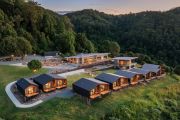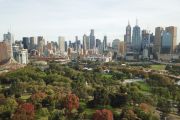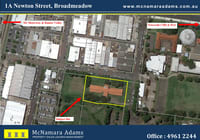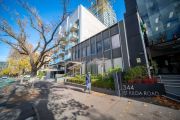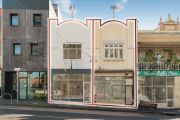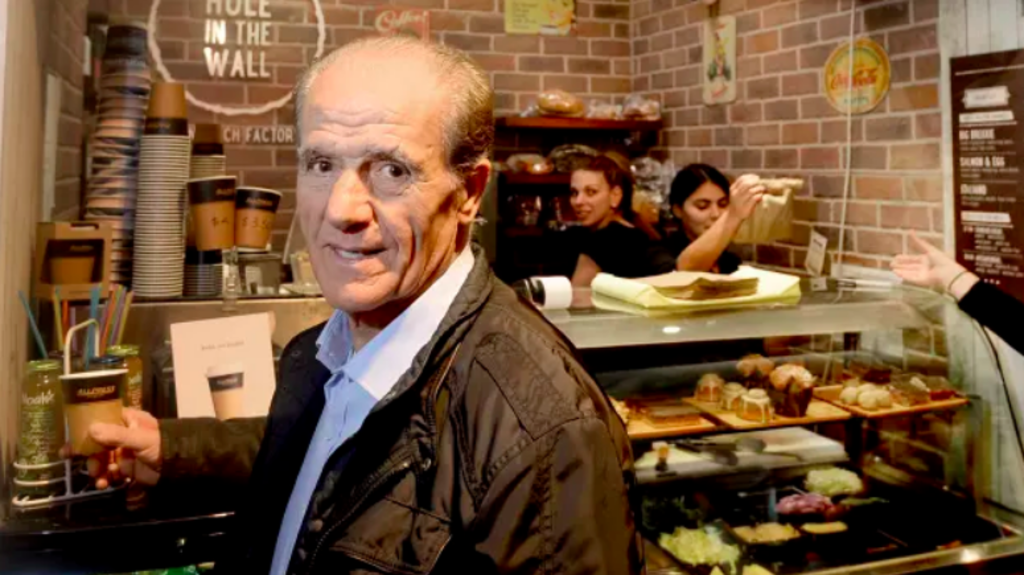
How entry-level investors are buying a tiny piece of the CBD
Investors of commercial property can’t get enough of the office towers on offer in Sydney’s CBD as vacancy rates hit 10-year lows and competitive buyers push yields below 5 per cent.
But while the largest buildings are selling to institutional investors in deals worth around a billion dollars, those with smaller budgets are also taking a punt on the heaving CBDs, as demand surges for small slivers of property in the same market.
A slice of the market might equate to just a few square metres, and leased as a hole in the wall cafe, florist or takeaway shop. The problem is they are hard to come by.
“When you talk about ground-floor retail, there’s only a finite opportunity. They might be building more and more levels and activating rooftops, but they’re not building more ground floor,” Savills Australia director Nick Lower said.
“With only a small number of offerings being made available in the core of the Sydney CBD, the under-supply of opportunity has led to an increase in demand from investors – looking for blue chip, safe holdings.”
Mr Lower said investors were attracted to the entry-level prices in the CBD market and while yields at about 5 per cent weren’t particularly soft, they were still more attractive than other commodities like bonds or investing in the ASX.
“People want to own a slice of the city and look at these properties as an opportunity to get in at a price point that’s a fraction of what a freehold property might cost,” he said.
Rare sales within the last two years include a 28-square-metre property on Alberta Street in Sydney that sold for $910,000, while a 30-square-metre asset on Little Collins Street in Melbourne sold for $1.2 million. Both properties are on lease to cafes, and sold at a yield of 5.17 per cent.
The boom in coffee consumption over the past five to 10 years had enabled coffee stands, which are well-suited to small spaces, to profit while also paying high rents, Mr Lower said. If the location was central and the lease secure, investors would comfortably buy at sub-5 per cent yields.
Dennis Nanis, 75, who is the owner of a tiny 5-square-metre shopfront (and a larger kitchen upstairs) on lease to The Hole in the Wall sandwich shop, says location is everything for these types of investments.
Mr Nanis bought the property, which is in a prime spot on Macquarie Street in Sydney’s CBD, for $1.1 million in 2006 and sold continental food mainly from his native Greece for six years before leasing out the store.
“I was on the north shore for a long time and I was always thinking: city, city, city … It’s a very good location. It’s a good spot,” he said.
Despite its small footprint, Mr Nanis said high demand for CBD shopfronts and reliable access to foot traffic made the property a good investment.
A 14-square-metre property in a prime position on Sydney’s York Street, leased to a coffee roasting company, has recently been listed for sale, with those in the industry suggesting it could fetch at least $1.5 million when it goes to auction at the end of the month. That would equate to more than $100,000 per square metre and a yield of between 4.5 and 5 per cent.
The property is being sold by casual investor Lucas Carruthers, 56, for whom running a hole in the wall in Sydney’s CBD runs in the family.
His parents, who he describes as the “original hippies”, ran a small cafe in the 1960s selling fresh carrot juice on the corner of Liverpool and Elizabeth streets.
Some 20 years later he followed suit by opening a vegetarian takeaway store in the 14sq m shopfront at Lot 1, 37 York Street. After a year of renting at $50 per week, Mr Carruthers bought the property in 1987 for $27,500.
Mr Carruthers has since closed the juicebar, and the property is now leased to Normcore Coffee Roasters. But his investment looks likely to pay off.
Outside the Sydney and Melbourne CBD, prices are lower but remain high relative to their size. A 12-square-metre Banh Mi stand in Brisbane’s Fortitude Valley is priced at $435,000; an 18-square-metre cafe on Bourke Street, Surry Hills, is on the market for $469,000.
Re/Max Australia owner Geoff Esdale, who is overseeing the sale of the Fortitude Valley shop, said some investors had been deterred by outgoing costs like building levies. But he added that these properties’ central location, combined with their scarcity, made them good investments.
“If someone rings up with $500,000 to spend, I’ll say I’ve got two-three of these properties, not hundreds of them,” he said.
Though some 30 years have passed since Mr Carruthers first bought his hole in the wall in Sydney, his motivations then are not dissimilar to those of investors chasing these properties today.
He said he did not have the money to buy a more expensive property in the CBD but wanted to invest in a location populated by “well-heeled people in offices”.
When the Black Monday stock market crash hit in October 1987, Mr Carruthers’ juice stand barely took a hit: those “well-heeled people” kept turning up for their $2-$3 hits.
“It’s directly opposite Wynyard Park. You can grab a juice and sit in the park. It didn’t take much of a business plan,” he said.

